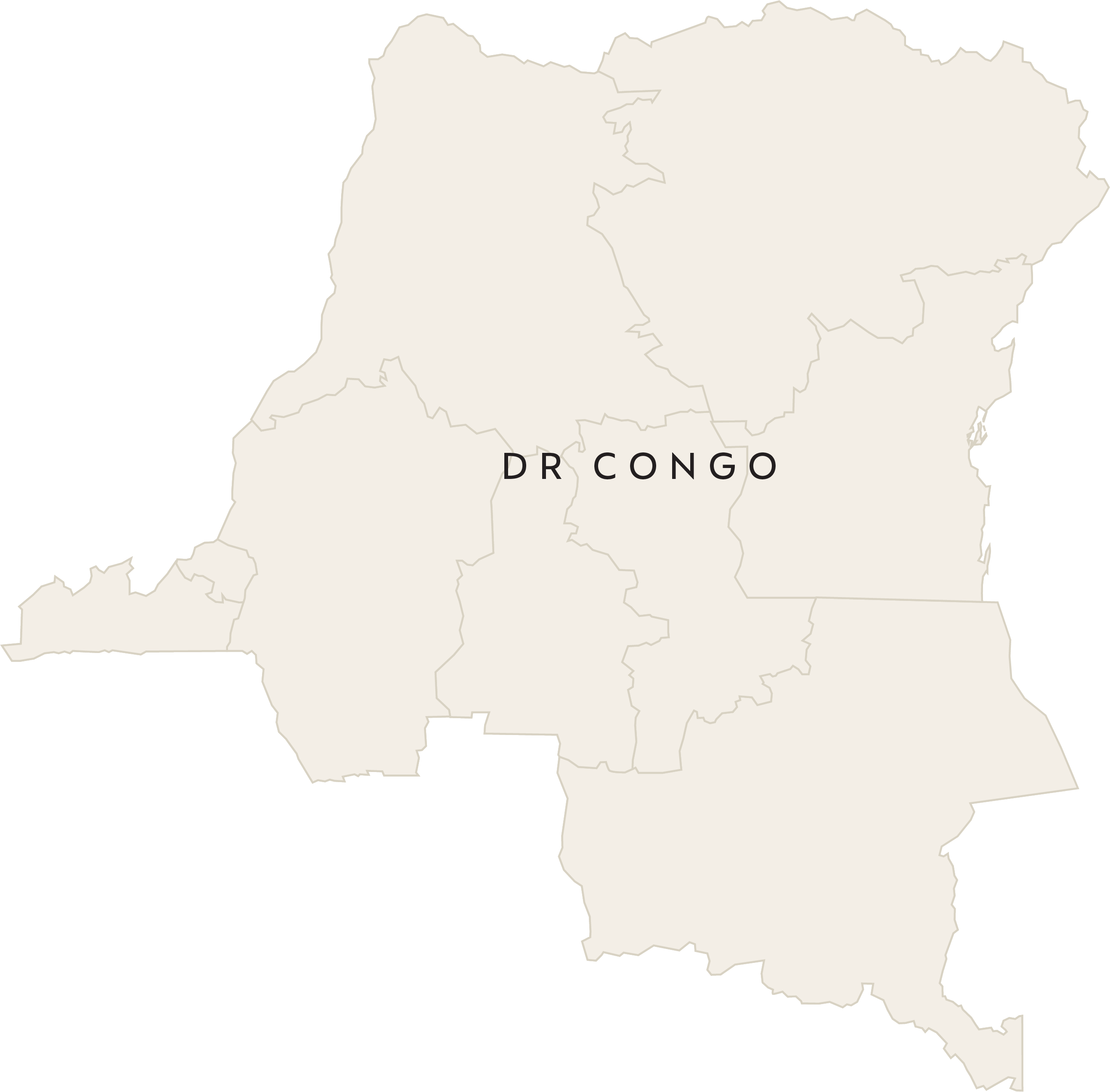
In 1980, DR Congo’s second most important export was coffee, ranking amongst the world’s finest. But during the early 2000s, exports declined after years of conflict and economic instability, and the coffee industry today is a shadow of its former glory. In 2019, former Nespresso CEO, Guillaume Le Cunff, was invited to visit the country to witness the transformative potential of social enterprise, Asili, in building lasting change in this highly challenged region.
Three experts – Tad Lunden from Asili; Paul Stewart, TechnoServe’s Global Coffee Director; and Charlotte Ruetz, former Coffee Sustainability Project Manager for Nespresso; explain how this once thriving coffee industry is being revived.
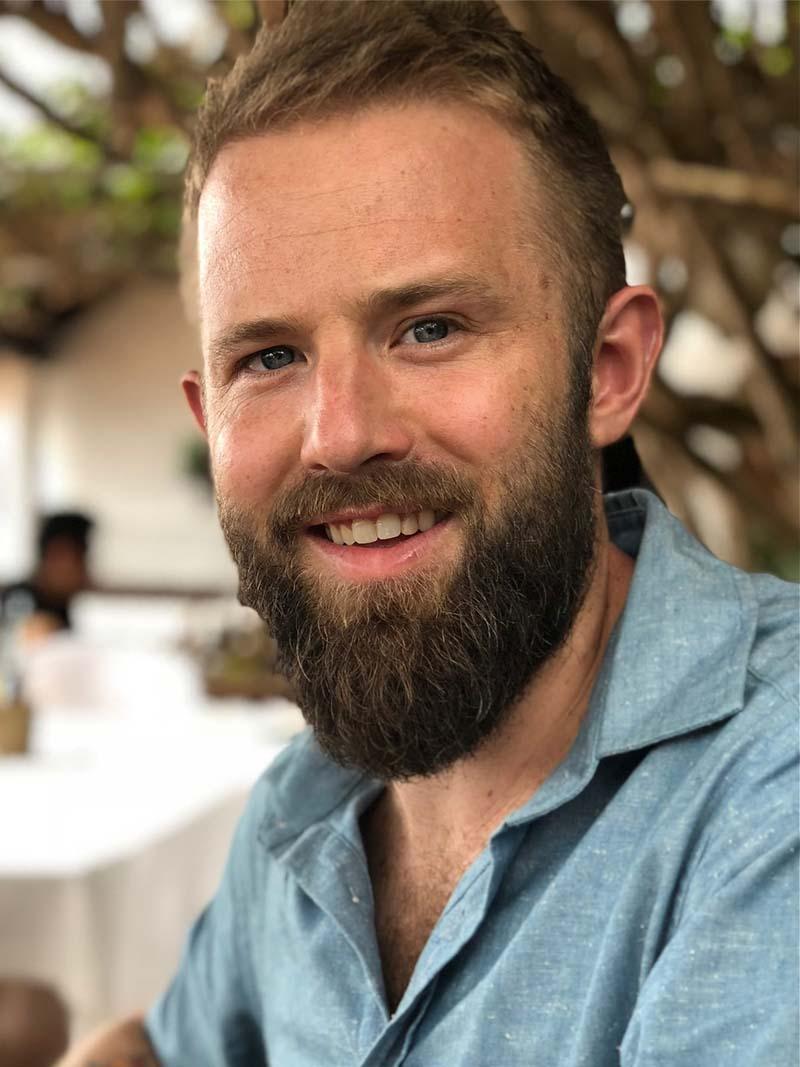
Tad Lunden
Wallace ‘Tad’ Lunden is passionate about amplifying local voices and businesses to improve chronically fragile communities. Through the Eastern Congo Initiative, he has led the development of Asili, a social enterprise providing water and health facilities in eastern Congo.
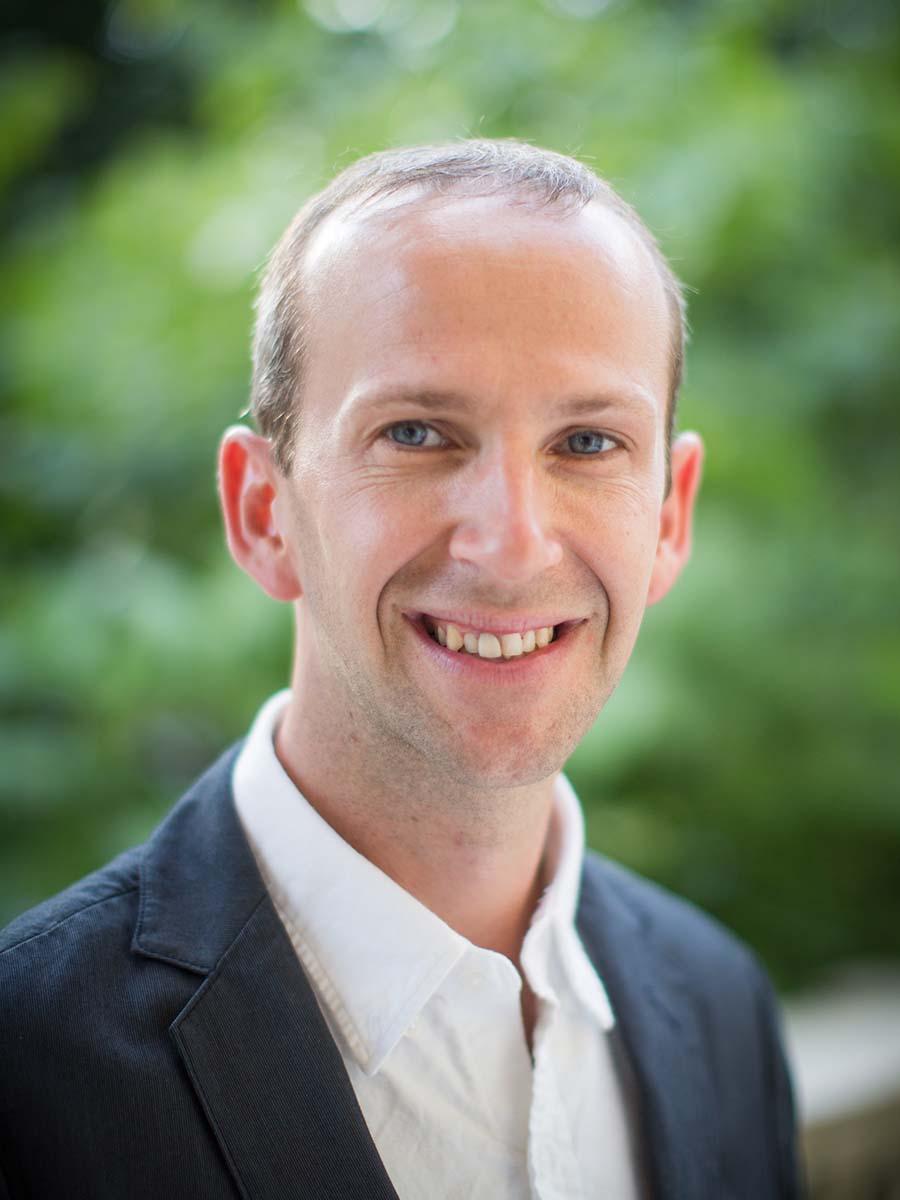
Paul Stewart
Paul Stewart is the Global Coffee Director for TechnoServe, an international nonprofit that fights poverty by helping people to build regenerative farms, businesses, and markets that increase incomes. Paul oversees TechnoServe’s work in helping hundreds of thousands of smallholder coffee farmers around the world to improve their livelihoods through sustainable agriculture and business partnerships.
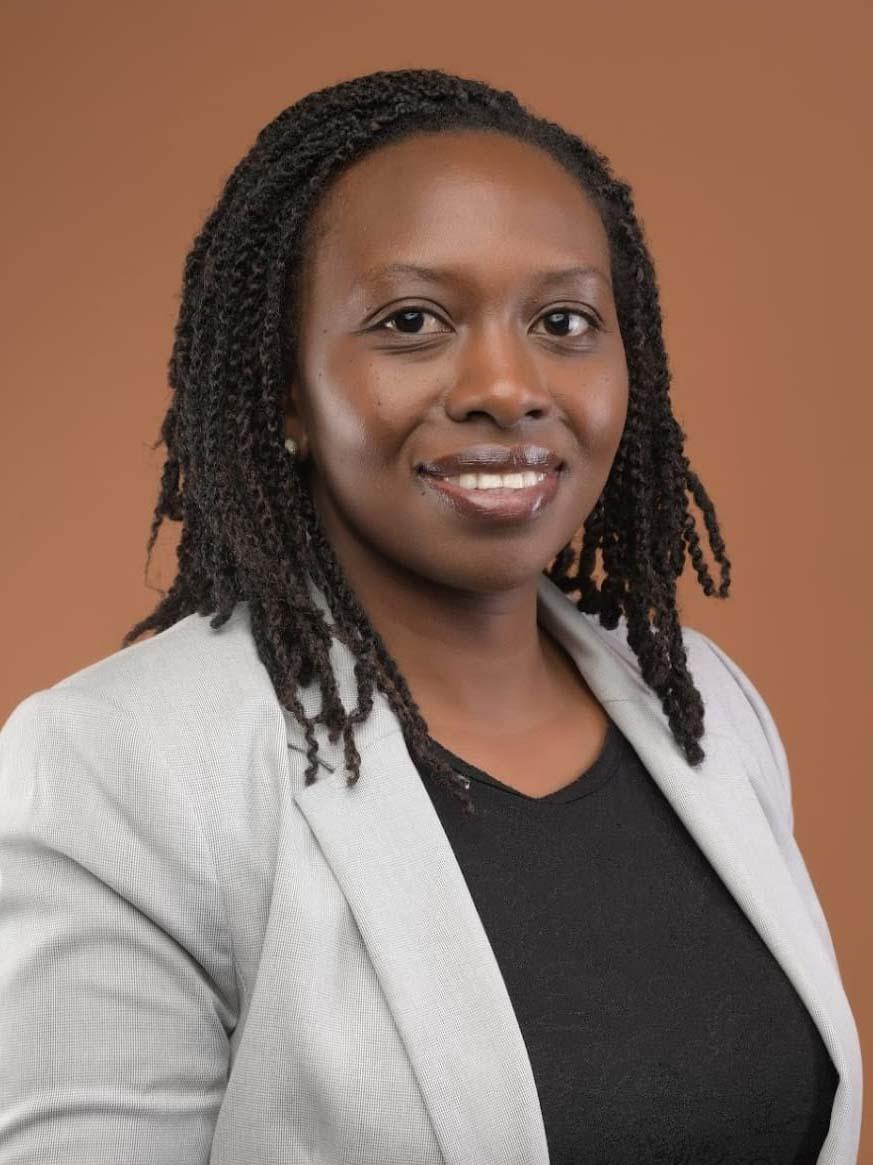
Phyllis Warui
Phyllis Warui is Nespresso's Coffee Program Manager in Africa. She works closely with coffee operators and development agencies involved in the AAA Program, and also leads the Reviving Origins program.
CAN YOU GIVE US SOME INSIGHTS INTO THE REVIVING ORIGINS PROGRAM?
PHYLLIS
The Reviving Origins program takes the foundational principles of our AAA Sustainable Quality™ Program and adapts them, so that they are able to support the rebooting of coffee production in regions that have suffered. This is either through conflict, economic or environmental disaster. So, it is able to not only reintroduce the world to incredible coffees, but importantly ensure a viable future for the farming communities who produce them.
This whole idea began with the work we initiated in South Sudan in 2013. Since then, the Reviving Origins program has grown to encompass many more threatened coffee growing regions and brought to life new coffees too. For example, one from post-conflict Colombia, as well as the first Cuban coffee to launch in the US in over 50 years.
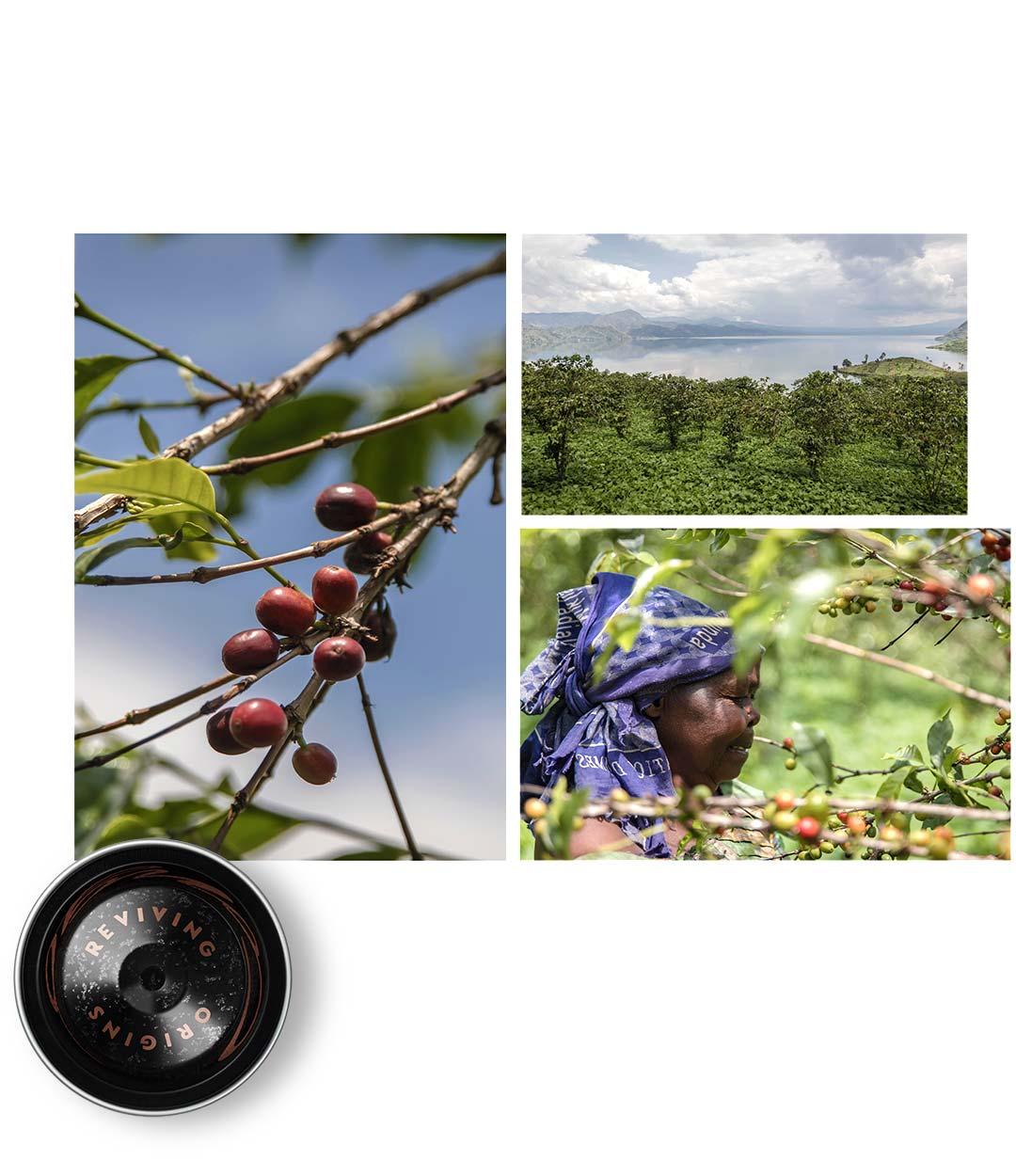
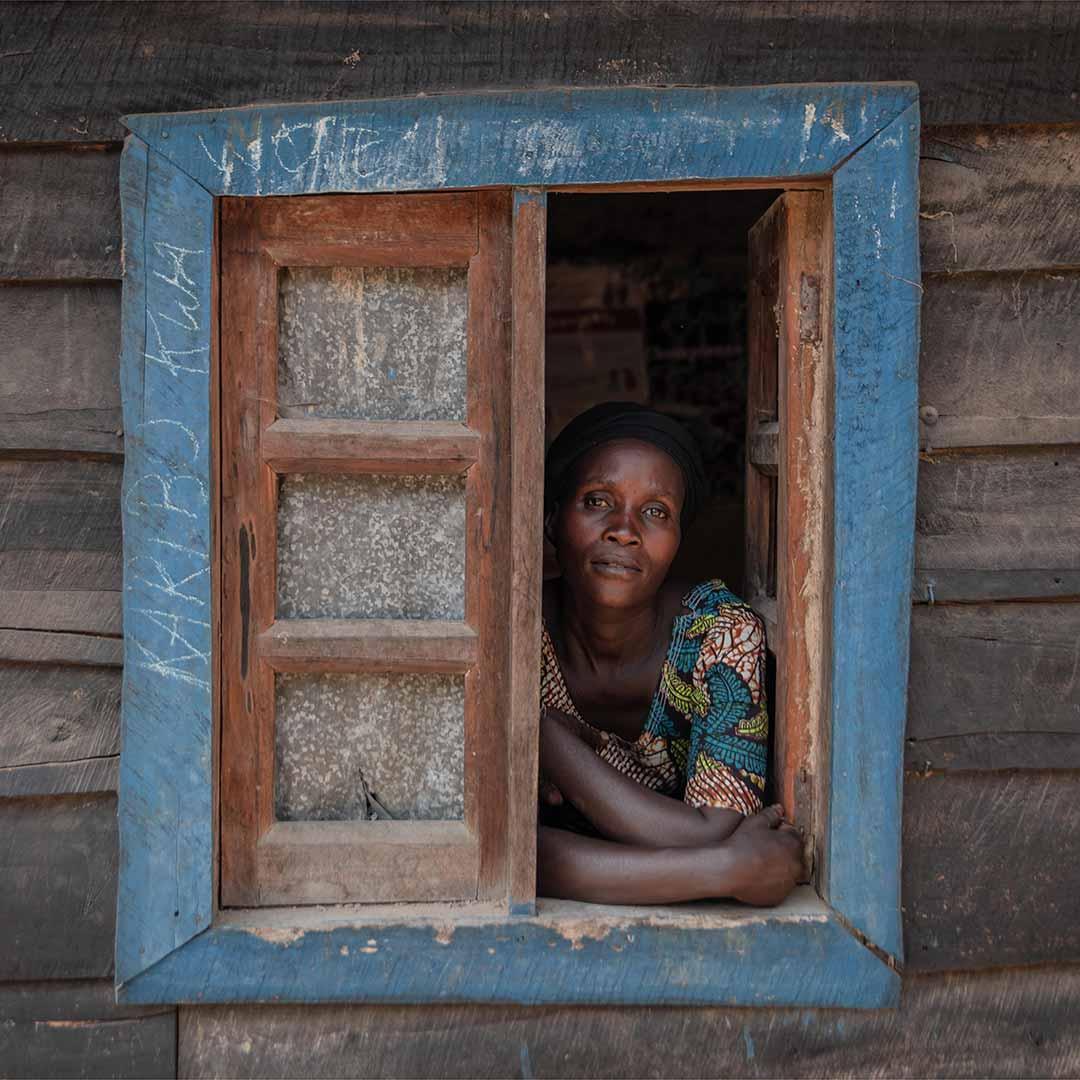
AND THIS NOTION OF REVIVING THREATENED COMMUNITIES IS NOW BEING APPLIED IN DR CONGO?
PAUL
Yes, exactly. Coffee used to be DR Congo’s second most important export. Along the Kivu lakeshores of Eastern Congo, the rain-rich volcanic soils are ideal for growing incredible arabica coffee. But this region has suffered decades of conflict, with many farmers fleeing their homes, and significant economic and healthcare challenges remain. Through USAID's Strengthening Value Chains program, TechnoServe began providing training to farmers as well as supporting the key cooperatives.
TAD
The connection with Nespresso was sparked from an invitation we made to Guillaume Le Cunff. In 2019, he came with Jerome Perez, to see the work we were doing through Asili in DR Congo. The Asili business model was – and is – very different. It’s a transformative way to build lasting, quality services in local communities – designed, built and operated by and for the people who need them.
PHYLLIS
Yes, this really got the ball rolling. And now, just a few years later, alongside TechnoServe and other partners, we’re supporting over 3,500 farmers in South Kivu through the AAA Program. That means supporting the production of high quality organic coffee as well as addressing the socio-environmental challenges of the region, in areas such as conflict, gender equality and health. And it also means making sure that price premiums flow back through to farmers, by introducing digital systems.
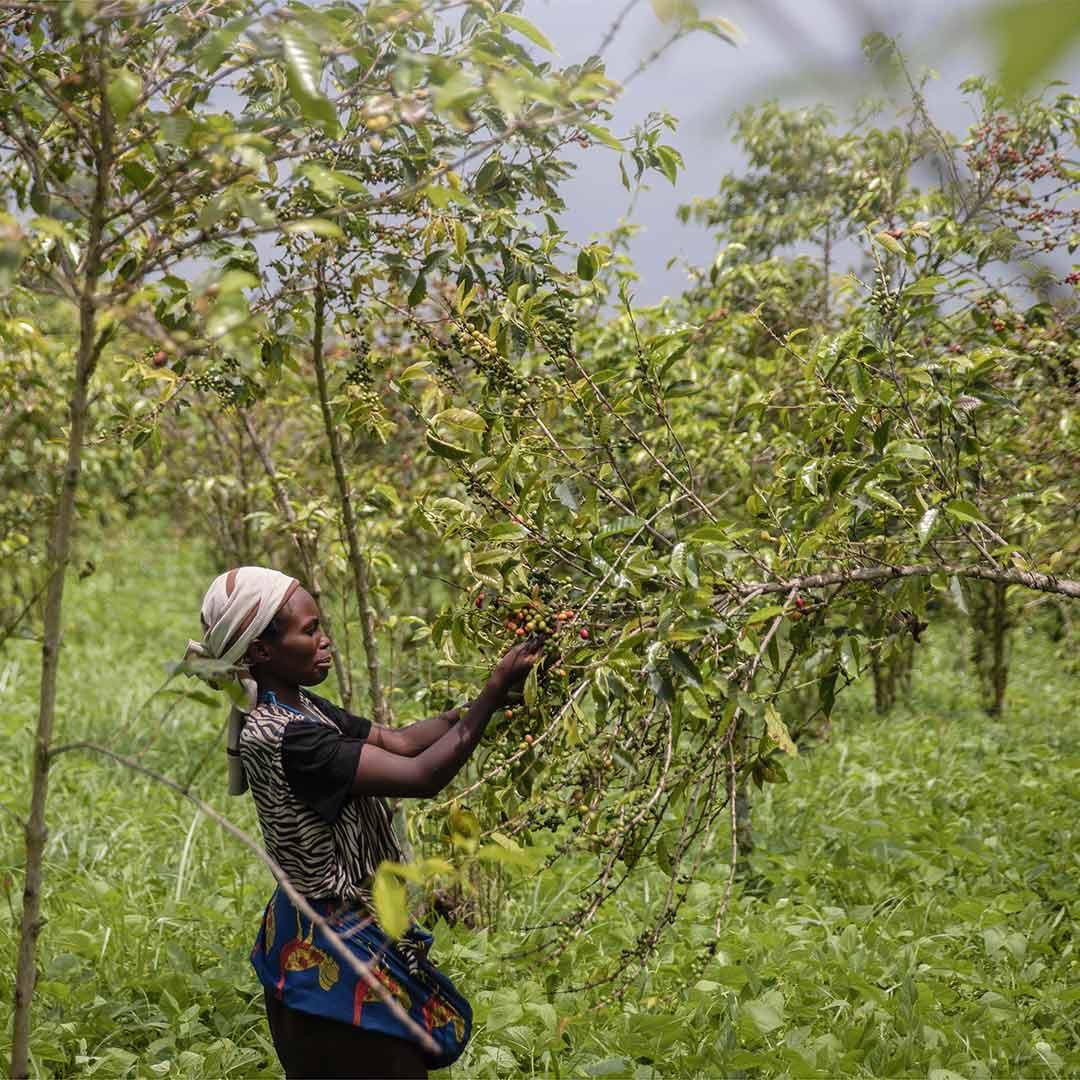
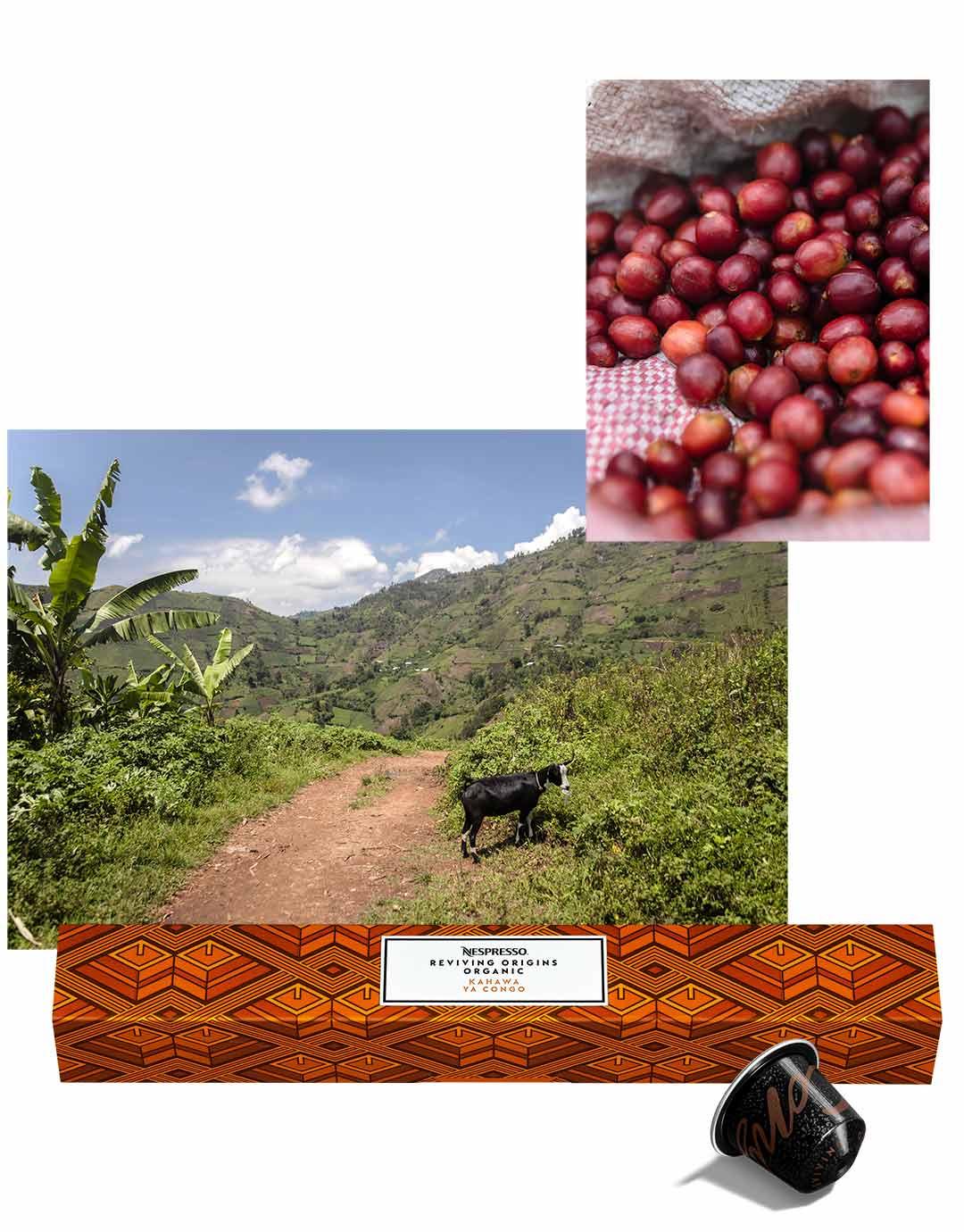
AND WHAT HAVE BEEN THE EARLY SUCCESSES?
PAUL
On the ground we’re certainly seeing a shift. A coffee region that was effectively on its knees is beginning to stand tall again.
PHYLLIS
In a more tangible sense, we’ve supported the organic certification of three cooperatives, as well as making sure that the farmers are receiving premiums for the high quality coffee they’re producing. All of this work – especially the determined efforts of the farmers in the region – has led to the launch of a smooth, fruity organic coffee called KAHAWA ya CONGO. It actually translates as ‘Hope of Congo’ and is the first organic coffee to be launched through the Reviving Origins program, as well as the first such coffee for business customers.
THIS IS ABOUT MUCH MORE THAN COFFEE REVIVAL. WHAT ELSE IS HAPPENING?
TAD
Congolese people consistently choose resilience, but there are many challenges here. Around 66% of households lack access to protected water sources, and 15% of children do not even reach their fifth birthday1. It’s sad to say, but this is often the result of preventable and treatable diseases, such as water-borne illnesses and acute respiratory infections.
PAUL
Without a viable water source, individuals – usually women and children – walk up to eight hours a day, just to retrieve water from rivers. Then once they have it, it’s often not clean and leads to disease.
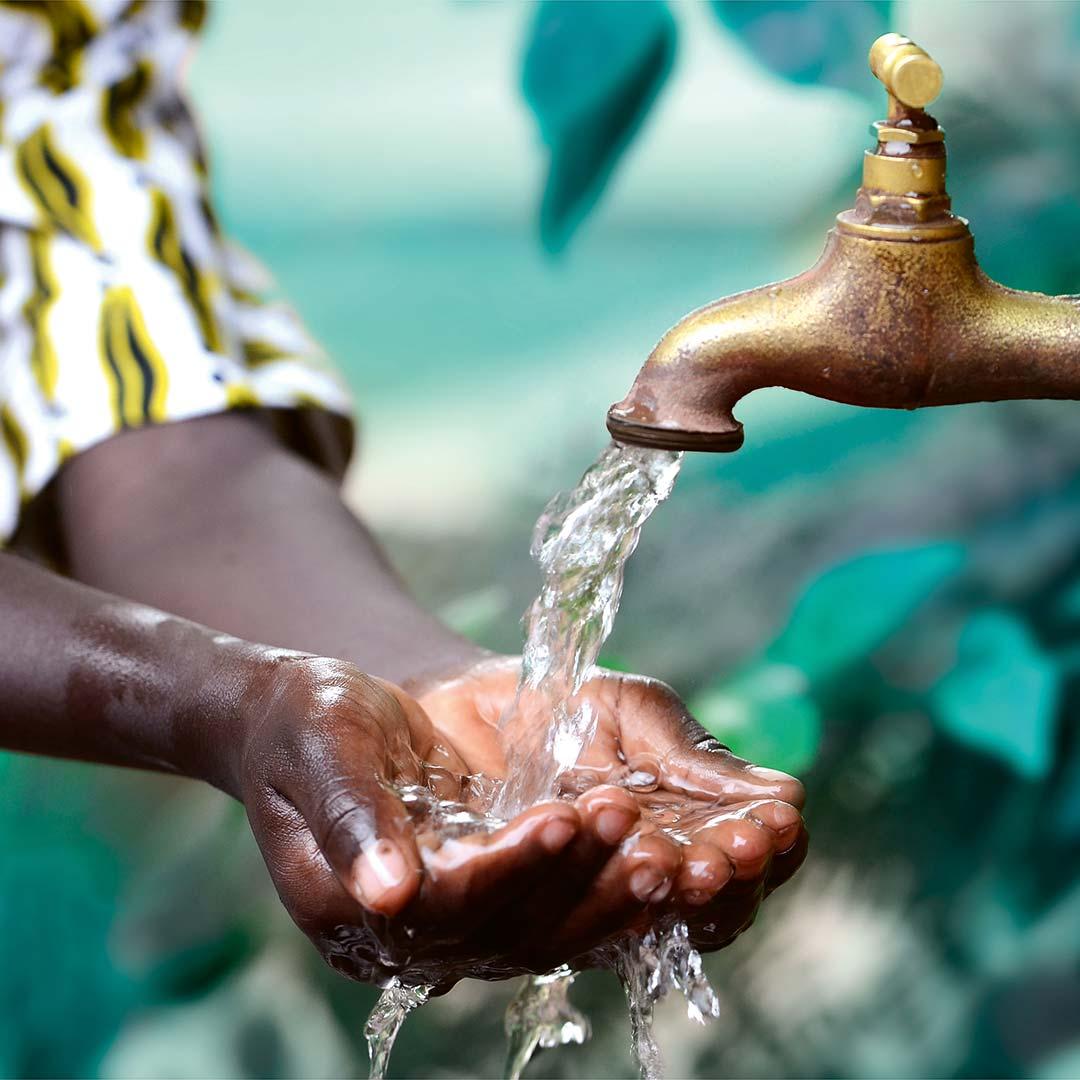
TAD
This is where Asili is really making a difference. Powered by the Eastern Congo Initiative (ECI), co-financed with USAID, and thanks to Nespresso’s commitment of USD 1.2 million, Asili has established 23 water access points across the region. Each is strategically built to serve clean, filtered water to up to 6,000 individuals.
The real strength of Asili is that we are building an affordable service with high-quality infrastructure that will be around for long into the future. The infrastructure is built with philanthropic funds allowing the business to only offset the ongoing delivery of services at a profit so they can last… and they do. Five years after they started, our first water kiosks were operating profitably.
We’re also working in other areas of DR Congo and Nespresso is supporting us here too. The key difference with Asili is that this is not a one-off project that will falter when the funding runs dry. Asili provides high quality services backed up by a viable business model that can support the Congolese population in the years to come.
PHYLLIS
Another part of this work that we’re supporting is the setting up of one primary and five mobile health clinics. These will deliver 13,000 health consultations per year to the local communities, while supporting the fight against cholera.
As Paul and Tad have highlighted, the facilities are vital to these communities, and in particular, women and children. Gender equality is a key area of focus for Nespresso and this is reflected in our work in DR Congo. I think all of this really begins to demonstrate what we mean when we say that coffee can be a force for good.
PAUL
We’re implementing the AAA Academy in DR Congo and we’re encouraging a woman and a man from each household to participate. The target is to have 45% female participation in the training and one of the first topics we’re looking at is improving household nutrition.
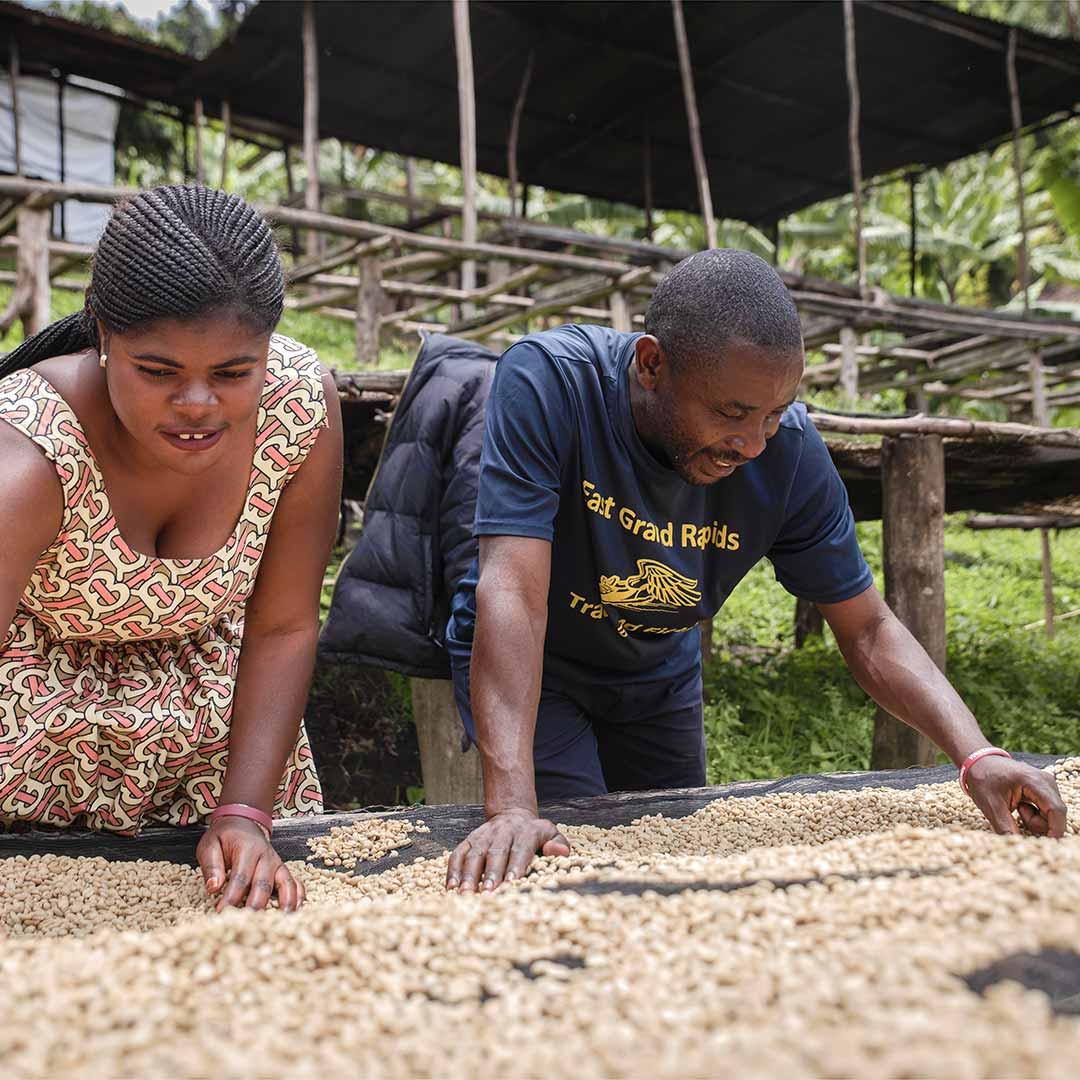
WHAT IS MAKING THE WORK IN DR CONGO SUCCESSFUL?
PAUL
Above everything else, I’d have to say it is the dedication of the farmers to revitalise their coffee communities. But it is also the approach – bringing together different players with shared interests that can provide the funds, commitment, and passion to make change happen.
PHYLLIS
As Paul says, these kind of relationships – with the right people involved – really can make the difference. On this note, we are immensely proud to be part of the Gorilla Coffee Alliance too, a new multi-stakeholder partnership which will promote better livelihoods for local farmers and protect the region’s endemic and critically endangered Grauer’s gorilla.
WHAT ARE THE PLANS FOR THE FUTURE?
PHYLLIS
Expansion for sure. We’ll be building on the successes we’re already seeing and bringing new hope to new farming communities. We’re now in the process of expanding the AAA Program across North Kivu and already we have 5,000 farmers enrolled here.
And in South Kivu, the Gorilla Coffee Alliance could be a game changer. Because as well as helping local families to establish environmentally sustainable ways to earn income, and improving access to health services, the Alliance will work with community institutions so that local people become advocates for conserving the Kahuzi-Biega National Park, which is threatened by poaching and deforestation.
This work, and in fact all of the work we’re doing in DR Congo, is a real collaborative effort. There are lots of committed partners with lots of energy. I think I can speak for all of them in saying that this collective energy is giving us real hope of a positive future for Congolese coffee communities.

